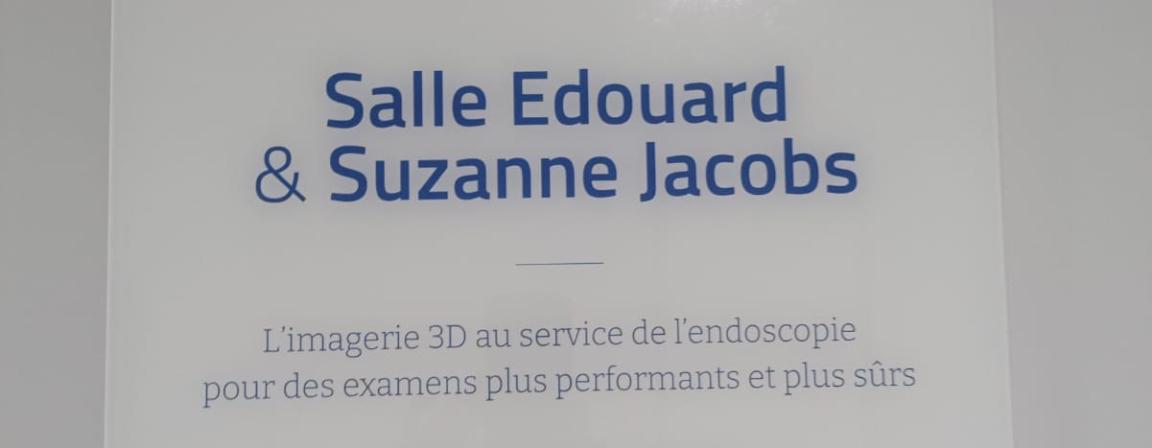3D radiology in the service of endoscopy brings new opportunities for treating intra-abdominal diseases
This 16 March, teams from the Endoscopy Unit and the Erasmus Fund are inaugurating a new endoscopy room. This room contains new leading-edge radiological equipment permitting 3D reconstruction to be used for diagnostic and therapeutic examinations when treating intra-abdominal pathologies. This new investment will make it possible to develop high precision, non-invasive techniques for use in the most complex procedures to optimise the clinical care of patients, achieve research progress in this field and strengthen the quality of teaching at the Brussels University Hospital (H.U.B.), of which the Erasmus Hospital is a part.

Developing techniques for complex intra-abdominal pathologies
Since mid-January already, patients have been able to benefit from renovated facilities at the Endoscopy Unit. With the support of the Erasmus Fund, the unit has been able to acquire new endoscopy equipment that permits a 3D reconstruction of radiological images. This system makes it possible to obtain a depth of field in three dimensions and a realistic spatial display of organs. This 3D reconstruction can serve as a "GPS" in facilitating access to intra-abdominal structures percutaneously or by endoscopy.
Patients of the H.U.B. hospitals (Erasmus Hospital, Jules Bordet Institute and the Queen Fabiola University Children's Hospital) will be able to benefit from this progress.
This new investment in treating gastroenterological and hepato-pancreato-biliary diseases opens the door to developing new techniques for the improved treatment of complex cases.
Considerable benefits for teaching and research
Connected to the system for retransmission for display on high definition screens in the endoscopy room, the integrated audiovisual equipment also makes it possible to transmit the procedure remotely to an auditorium or through streaming, thereby teaching young doctors and budding or more experienced gastroenterologists both basic and more advanced endotherapy techniques.
Two studies are also in progress to validate the contribution of this non-invasive, high precision technique in the most complex procedures in the framework of a clinical research activity, with the aid of the Clinical Research Unit and biomedical engineers from the University Laboratory of Experimental Gastroenterology.
An investment made possible with the support of the Erasmus Fund
The investment in the new endoscopy room was made possible thanks to financial support from the Erasmus Fund for medical research through the Convention of the Edouard and Suzanne Jacobs Fund.